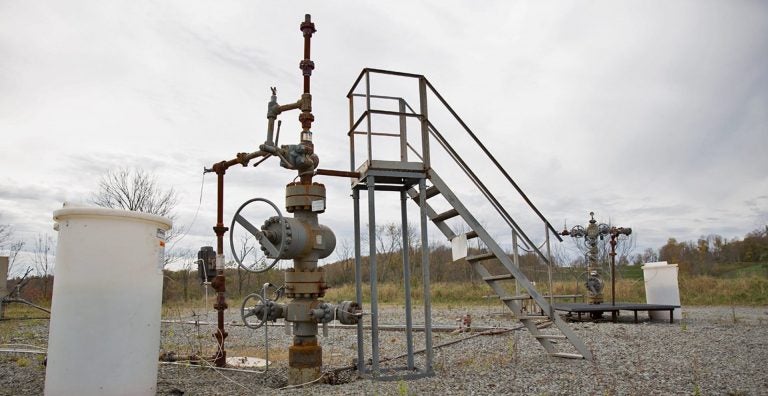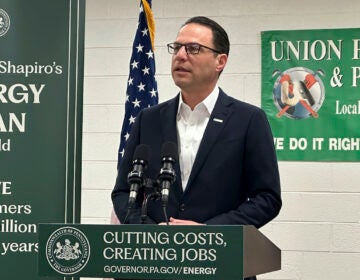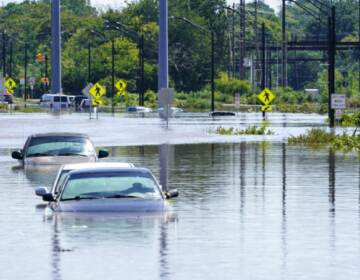DEP unveils proposal to reduce emissions from existing oil, gas wells
Pennsylvania environmental officials have come out with a plan to reduce leaks from thousands of the state’s oil and gas wells.

Natural gas wells in Springville Township, Pa. (Lindsay Lazarski/WHYY)
Pennsylvania environmental officials have come out with a plan to reduce leaks from thousands of the state’s oil and gas wells.
The proposal is part of Gov. Tom Wolf’s strategy announced in 2016 to reduce methane emissions. Methane, a potent greenhouse gas, sometimes leaks from wells and other natural gas components.
The draft plan released by the Department of Environmental Protection would beef up leak detection and require, in some cases, better controls to prevent emissions from escaping at wells and other gas facilities.
Rather than single out methane, however, it mainly targets a different type of emission known as volatile organic compounds, which can harm human health and contribute to ozone. State officials say requiring stricter controls to prevent VOCs from leaking will prevent methane from escaping as well.
“We want to make sure that all oil and gas sources are well-controlled in a reasonable manner to make sure we can keep emissions reduced as low as possible,” said George Hartenstein, deputy secretary for waste, air, radiation and remediation.
He said the Environmental Protection Agency in 2016 directed Pennsylvania to address VOCs. Under President Donald Trump, the EPA earlier this year proposed withdrawing that requirement. Hartenstein said the EPA has not made a final decision.
“Pennsylvania still has a legal requirement to address that right now,” he said. “Because the rulemaking process is so long, we have to move forward and do what is legally required of us right now.”
DEP’s proposal has to go through a formal process, including public comment, and several layers of approvals before it would take effect.
“It’s really just a work in progress right now,” Hartenstein said.
David Spigelmyer, president of the Marcellus Shale Coalition, said in a statement that the natural gas industry trade group is still reviewing the proposal but has concerns about potential costs and about DEP’s timing.
“Rather than creating more regulatory uncertainty, it would be prudent for DEP to delay any regulatory proposals until federal rules are finalized,” he said.
Hartenstein said DEP is working to determine how it will cost for the industry to comply with the proposal.
The plan to address emissions from existing wells comes on the heels of changes earlier this year that require greater protections for methane leaks from newly built wells.
Some environmental groups welcomed the latest proposal, but they say it could go further.
“There’s a lot good about it,” said Andrew Williams, director of regulatory and legislative affairs for the Environmental Defense Fund.
He said one important element of the plan requires natural gas operators to perform quarterly checks to see if their equipment is leaking at well sites and compressor stations. While detection requirements already exist for newer wells, some drilled before 2013 are exempt.
“[It] really for the first time in a lot of instances puts controls, like a requirement to show up on site and perform a survey for leaking components, into place for wells across Pennsylvania that had not existed previously,” he said.
He said the proposal could go further to target methane in addition to VOCs. He said he also would like to see an exemption for low-producing wells removed.
WHYY is your source for fact-based, in-depth journalism and information. As a nonprofit organization, we rely on financial support from readers like you. Please give today.




